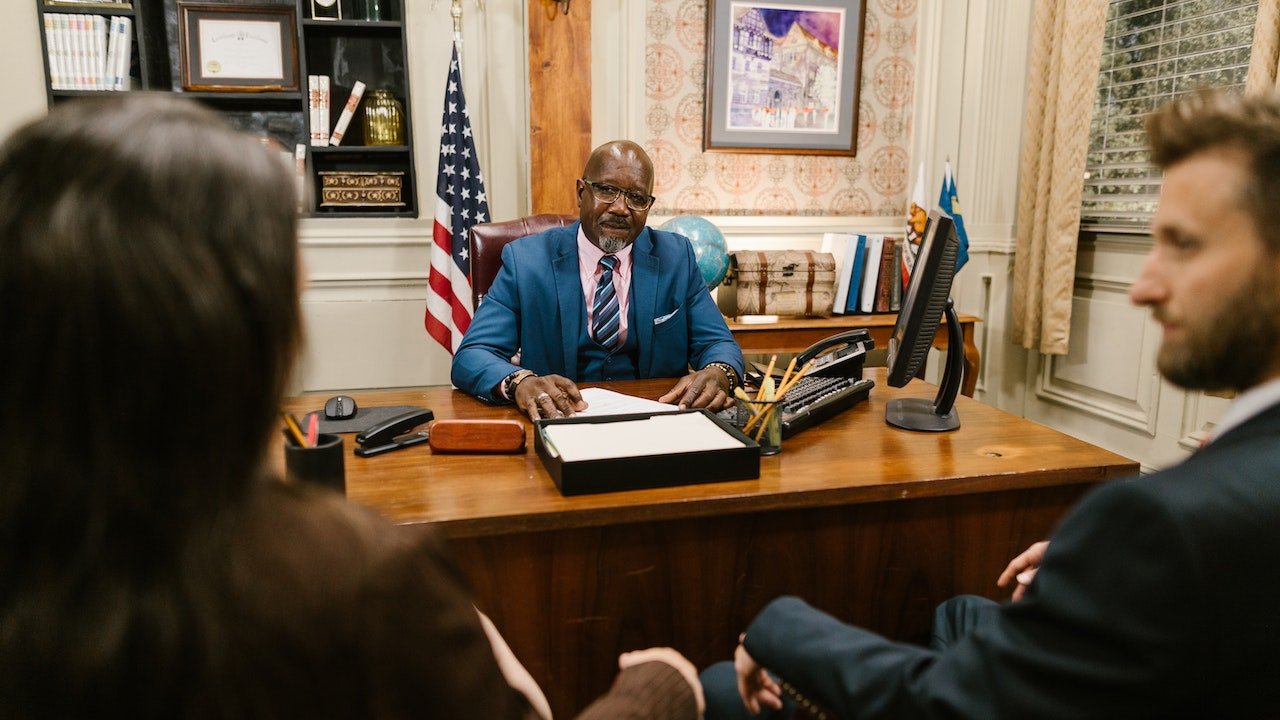Breaking Point: Recognizing Signs of Marital Trouble

Marriage, an institution built on love, trust, and commitment, can sometimes encounter turbulent waters. It’s not uncommon for couples to face challenges along the journey, but recognizing the early signs of marital trouble is crucial for navigating these difficulties effectively. In this comprehensive exploration, we’ll delve into the intricacies of identifying and addressing potential issues in a marriage, offering insights and guidance for those facing relational challenges.
Common Signs of Marital Trouble
Lack of Communication
Communication serves as the lifeblood of any successful relationship. When couples struggle to express their thoughts, feelings and needs openly and honestly, it can create a breeding ground for misunderstanding, resentment, and disconnection. Signs of communication breakdown may include avoiding difficult conversations, resorting to passive-aggressive behaviour, or feeling unheard and invalidated by your partner.
Increased Conflict and Arguing
While occasional disagreements are inevitable in any partnership, a significant escalation in conflict and arguing can indicate underlying issues that demand attention. Whether it’s frequent bickering over trivial matters or explosive arguments fueled by unresolved resentments, persistent strife can erode the foundation of trust and intimacy within a marriage.
Emotional Distance
Emotional intimacy forms the cornerstone of a fulfilling marital bond. When couples find themselves drifting apart emotionally, it can manifest as a profound sense of loneliness and disconnection, even in the presence of their partner. Signs of emotional distance may include a lack of affection, shared interests, or meaningful conversations, leaving both individuals feeling isolated and misunderstood.
Lack of Intimacy
Intimacy encompasses more than physical closeness; it encompasses emotional vulnerability, trust, and mutual respect. A noticeable decline in intimacy within a marriage can indicate deeper relational issues, such as unresolved conflicts, unmet emotional needs, or underlying resentment. Whether it’s a diminishing frequency of sexual encounters or a pervasive sense of emotional detachment, addressing the root causes of intimacy loss is essential for restoring connection and closeness between partners.
Financial Disagreements
Money matters can be a significant source of tension and conflict in marriages. Disagreements over financial priorities, spending habits, or long-term financial goals can strain the relationship and create rifts between partners. Financial stressors, such as debt, unemployment, or unequal earning power, can exacerbate marital tensions, leading to resentment, power struggles, or mistrust.
Infidelity
Infidelity, whether emotional or physical, represents a profound breach of trust in a marriage. Discovering that one’s partner has been unfaithful can shatter the foundation of security and intimacy within the relationship, leaving both individuals grappling with feelings of betrayal, hurt, and uncertainty about the future. Rebuilding trust after infidelity requires a concerted effort from both partners, including transparent communication, accountability, and a willingness to address the underlying issues that contributed to the betrayal.
Physical Symptoms of Marital Stress
Sleep Disturbances
The stress of marital discord can take a toll on one’s physical health, manifesting as sleep disturbances such as insomnia, restless sleep, or frequent awakenings throughout the night. Sleep deprivation not only exacerbates feelings of irritability and fatigue but also impairs cognitive function and emotional regulation, further complicating the resolution of marital issues.
Changes in Appetite
Marital stress can disrupt one’s eating habits, leading to changes in appetite and dietary patterns. Some individuals may experience a loss of appetite, resulting in unintended weight loss and nutritional deficiencies. In contrast, others may turn to food as a source of comfort, leading to overeating or binge eating behaviours. These fluctuations in eating behaviour can contribute to feelings of guilt, shame, and body image dissatisfaction, exacerbating existing marital tensions.
Increased Irritability
Persistent marital stress can heighten one’s emotional reactivity, leading to increased irritability, mood swings, and outbursts of anger. Small annoyances that may have been tolerable in the past can trigger disproportionate reactions, straining interpersonal dynamics and escalating conflict within the relationship. Left unchecked, chronic irritability can erode the goodwill and empathy between partners, making it challenging to resolve disagreements constructively.
Psychological Effects of Marital Strain
Stress and Anxiety
The strain of marital discord can manifest as heightened levels of stress and anxiety, affecting both mental and physical well-being. Constant worrying about the state of the relationship, fear of abandonment, or uncertainty about the future can create a pervasive sense of unease and tension, exacerbating existing marital conflicts and impairing one’s ability to cope effectively.
Depression
Persistent marital issues can contribute to feelings of sadness, hopelessness, and despair, culminating in clinical depression for some individuals. The sense of futility and helplessness that accompanies chronic relationship distress can undermine one’s sense of self-worth and agency, exacerbating feelings of isolation and disconnection from both oneself and others.
Low Self-Esteem
Marital strife can take a significant toll on one’s self-esteem and self-confidence, leading to feelings of inadequacy, unworthiness, and self-doubt. Constant criticism, blame, or rejection from one’s partner can erode one’s sense of identity and value, fostering a negative self-image and perpetuating a cycle of self-sabotaging behaviours. Rebuilding self-esteem after experiencing marital trouble requires a combination of self-reflection, self-compassion, and boundary-setting to protect one’s emotional well-being.
Impact on Family Dynamics
Effects on Children
Marital discord doesn’t occur in a vacuum; it reverberates throughout the entire family system, affecting children’s emotional, psychological, and behavioural development. Witnessing parental conflict can create a sense of insecurity and instability for children, leading to heightened anxiety, behavioural problems, and academic difficulties. Children may internalize parental conflict, blame themselves for their parent’s problems, or externalize their distress through acting out or withdrawal.
Extended Family Relationships
Marital problems can also strain relationships with extended family members, including in-laws, siblings, and close relatives. Family gatherings and celebrations may become tense as underlying resentments and grievances spill into interpersonal interactions. Well-meaning but misguided attempts by family members to intervene or offer unsolicited advice can further exacerbate marital tensions, creating additional sources of stress and conflict for both partners.
Seeking Help: Counseling and Therapy
Benefits of Professional Help
Marriage counselling or therapy offers couples a structured and supportive environment to explore their relational dynamics, identify underlying communication and behaviour patterns, and develop effective strategies for resolving conflicts and improving intimacy. Trained therapists and counsellors can facilitate productive dialogue, provide objective feedback, and offer evidence-based interventions to address specific marital issues and challenges.
Overcoming Stigma
Despite the widespread prevalence of marital discord, seeking professional help for relationship problems remains stigmatized in many cultural and societal contexts. Couples may hesitate to seek assistance due to fears of judgment, shame, or the perception of failure. However, acknowledging the courage and resilience it takes to seek help can empower couples to prioritize their relationship’s health and well-being over concerns about external validation or judgment.
Steps to Address Marital Issues
Open Communication
Creating a safe and non-judgmental space for open and honest communication is essential for fostering trust, intimacy, and mutual understanding within a marriage. Couples can benefit from practising active listening, expressing empathy and validation, and effectively using “I” statements to convey their thoughts, feelings, and needs. Cultivating a culture of transparency and vulnerability allows couples to address conflicts constructively and collaboratively rather than allowing resentments to fester and escalate.
Compromise and Negotiation
Healthy conflict resolution requires a willingness from both partners to engage in compromise and negotiation, prioritizing the collective well-being of the relationship over individual desires or preferences. Couples can explore win-win solutions honouring each other’s perspectives, values, and boundaries, finding creative ways to meet both partners’ needs and aspirations. Couples can navigate through differences and conflicts by fostering collaboration and cooperation with greater resilience and mutual respect.
Reconnecting Emotionally
Rebuilding emotional intimacy and connection requires intentional effort and investment from both partners. Couples can engage in activities that foster emotional closeness and bonding, such as regular date nights, shared hobbies, or meaningful rituals of connection. Cultivating moments of vulnerability, appreciation, and affirmation allows couples to deepen their emotional bond and strengthen their sense of partnership and companionship.
Setting Boundaries
Establishing clear and healthy boundaries is essential for maintaining mutual respect, autonomy, and self-care within a marriage. Couples can collaboratively define their needs, preferences, and limits, negotiating mutually acceptable agreements honouring each partner’s autonomy and agency. Respecting boundaries fosters trust, safety, and respect within the relationship, reducing the likelihood of conflicts and misunderstandings.
Importance of Self-Care
Individual Well-Being in Marriage
Prioritizing self-care is essential for preserving one’s mental, emotional, and physical well-being within marriage. Engaging in self-compassionate practices, such as mindfulness, relaxation techniques, or creative expression, allows individuals to recharge and replenish their inner resources, fostering greater resilience and adaptability in marital challenges.
Prioritizing Mental and Emotional Health
Investing in mental and emotional health is a cornerstone of maintaining marital resilience and vitality. Individuals can benefit from individual therapy or counselling to explore their values, beliefs, and aspirations independent of their role in the relationship. Cultivating a sense of self-awareness, self-compassion, and self-efficacy empowers individuals to navigate marital difficulties with greater clarity, confidence, and integrity.
Recognizing When to Seek Support
Knowing When Issues Are Beyond Resolution
While every marriage encounters challenges, some issues may be too complex or entrenched to resolve without professional intervention. Recognizing when marital problems are beyond the scope of self-help or interpersonal negotiation requires humility, discernment, and a willingness to prioritize the health and well-being of the relationship over personal pride or ego.
Identifying When Professional Intervention Is Necessary
Persistent issues that continue to escalate, despite concerted efforts to address them, may signal the need for professional intervention. Whether it’s frequent conflict, emotional disconnection, or unresolved trauma from past experiences, seeking the guidance of a qualified therapist or counsellor can provide couples with the tools, insights, and support they need to navigate through complex relational dynamics and achieve meaningful change.
Read More: Adoption and Surrogacy Laws: Legally Building Families
Resources for Support
Hotlines and Helplines
Various hotlines and helplines are available for individuals seeking immediate support and guidance in times of marital crisis. Trained counsellors and volunteers can offer compassionate listening, crisis intervention, and referrals to local resources and services tailored to the unique needs of each caller.
Support Groups
Joining a support group for couples facing similar challenges can provide validation, encouragement, and practical advice for navigating relational difficulties. Whether it’s an in-person support group facilitated by a licensed therapist or an online community of like-minded individuals, sharing experiences and insights with others can foster a sense of solidarity and empowerment in times of distress.
Online Forums and Communities
Online platforms offer a wealth of resources and support for individuals seeking guidance and encouragement to navigate marital issues. Whether participating in discussion forums, accessing self-help articles and guides, or connecting with qualified professionals through teletherapy services, online communities provide a convenient and accessible means of seeking support and guidance from the comfort of home.
The Role of Patience and Perseverance
Understanding That Healing Takes Time
Rebuilding a troubled marriage requires patience, compassion, and a willingness to embrace the process of growth and transformation. Healing deep-seated wounds, resolving longstanding conflicts, and rebuilding trust and intimacy cannot be rushed or forced but require a commitment to long-term healing and personal development.
Commitment to the Process of Reconciliation
Both partners must be fully invested in the reconciliation process, demonstrating a genuine desire to understand each other’s perspectives, address past hurts, and cultivate a shared vision. Building a resilient and thriving marriage requires a steadfast commitment to mutual growth, respect, and accountability, even in the face of setbacks and challenges.
Coping Strategies for Individuals
Managing Stress and Anxiety
Developing healthy coping strategies for managing stress and anxiety is essential for preserving one’s mental and emotional well-being within the context of marital strife. Whether engaging in relaxation techniques, physical exercise, or creative expression, finding healthy outlets for stress relief allows individuals to recharge and replenish their inner resources, fostering greater resilience and adaptability in the face of adversity.
Building a Support Network
Surrounding oneself with a supportive network of friends, family members, and trusted confidants can provide invaluable encouragement, validation, and perspective during marital distress. Cultivating authentic connections with others who share similar values, beliefs, and life experiences fosters a sense of belonging and solidarity, reducing feelings of isolation and loneliness in times of crisis.
Investing in Personal Growth
Focusing on personal growth and self-improvement is an empowering way to navigate marital challenges gracefully and resiliently. Whether pursuing educational opportunities, developing new skills, or exploring creative outlets, investing in personal development fosters a sense of agency, autonomy, and self-efficacy, empowering individuals to navigate through adversity with confidence and integrity.
Rebuilding Trust and Intimacy
Steps Toward Rebuilding a Strong Foundation
Rebuilding trust and intimacy after experiencing relational trauma or betrayal requires patience, empathy, and a willingness to engage in deep emotional work. Both partners must be committed to fostering transparency, honesty, and vulnerability in their interactions, creating a climate of safety and security where trust can be rebuilt, and intimacy can flourish.
Rekindling Emotional Connection
Reconnecting emotionally with one’s partner requires intentional effort and investment in nurturing the emotional bond between partners. Whether through shared experiences, meaningful conversations, or acts of kindness and appreciation, cultivating moments of emotional connection allows couples to deepen their intimacy and rediscover the joy and vitality of their relationship.
The Importance of Forgiveness
Letting Go of Resentment and Bitterness
Forgiveness is a transformative act of compassion and grace that liberates individuals from resentment and bitterness. For past transgressions, choosing to forgive one’s partner and oneself allows couples to release the emotional weight of grievances and create space for healing, reconciliation, and growth.
Moving Forward With a Clean Slate
Embracing forgiveness allows couples to move forward with a sense of renewal and optimism, leaving behind the pain and regret of the past and embracing the possibilities of the present moment. By extending grace and compassion to one another, couples can create a future grounded in mutual respect, trust, and commitment, building a foundation for lasting happiness and fulfilment.
Read More: Family Law Aspects Such As Child Custody, Divorce, and Others
Conclusion
In conclusion, recognizing the signs of marital trouble is the first step towards initiating positive change and growth within a relationship. By acknowledging the common indicators of distress, seeking support when needed, and committing to the process of healing and reconciliation, couples can overcome adversity and cultivate a resilient, vibrant, and deeply fulfilling relationship.
FAQs
How do I know if my marital issues are serious enough to seek professional help?
Find yourself stuck in a cycle of conflict and dissatisfaction despite your best efforts to resolve issues independently. It may be beneficial to seek guidance from a qualified therapist or counsellor.
What if my partner refuses to acknowledge the signs of marital trouble?
It’s essential to approach the conversation with empathy and understanding, emphasizing the importance of mutual growth and well-being within the relationship. Consider seeking individual therapy or counselling to address your needs and concerns if necessary.
Can marital problems ever be completely resolved?
While every relationship faces challenges, many couples can overcome obstacles and strengthen their bond through open communication, mutual respect, and a commitment to personal and relational growth.
Is it normal to feel scared or embarrassed about seeking help for marital issues?
Seeking help for marital problems is a courageous and proactive step towards healing and growth. Remember that therapists and counsellors are trained professionals committed to providing compassionate support and guidance without judgment.
How can I rebuild trust after infidelity has occurred in my marriage?
Rebuilding trust after infidelity requires honesty, accountability, and a willingness from both partners to address underlying issues and work towards forgiveness and reconciliation. Seeking the guidance of a qualified therapist or counsellor can provide valuable support and guidance in navigating through this challenging process.











